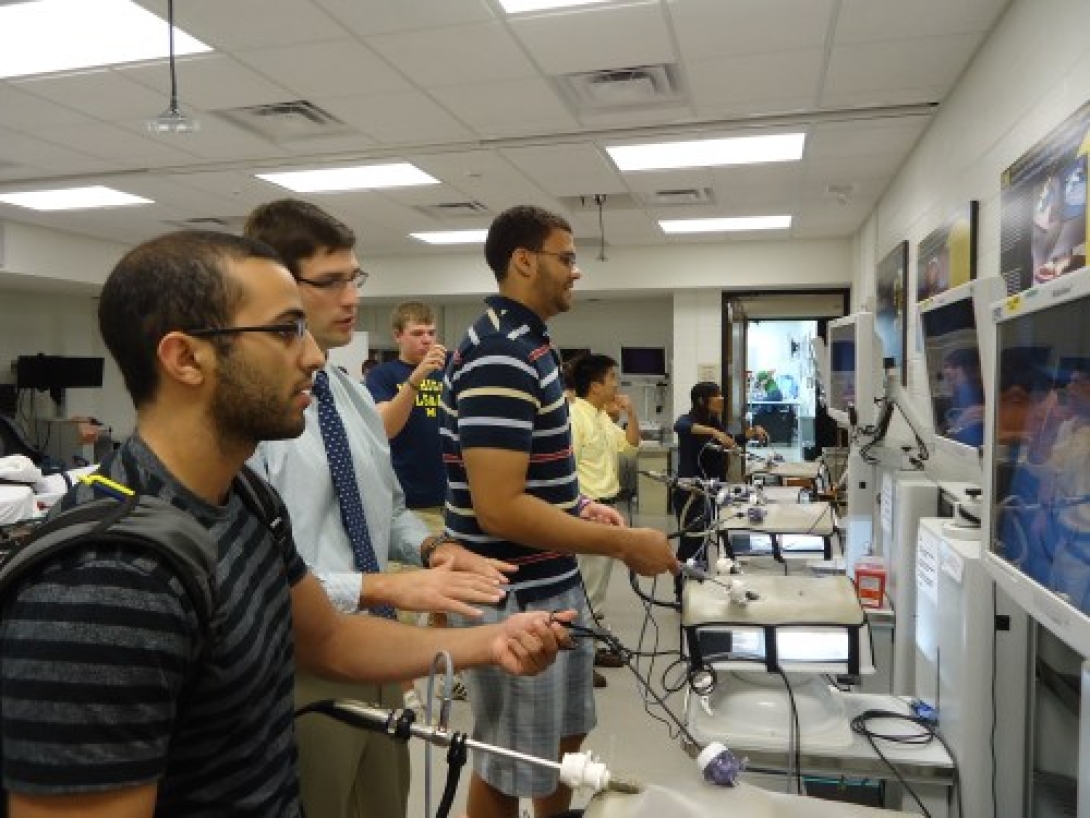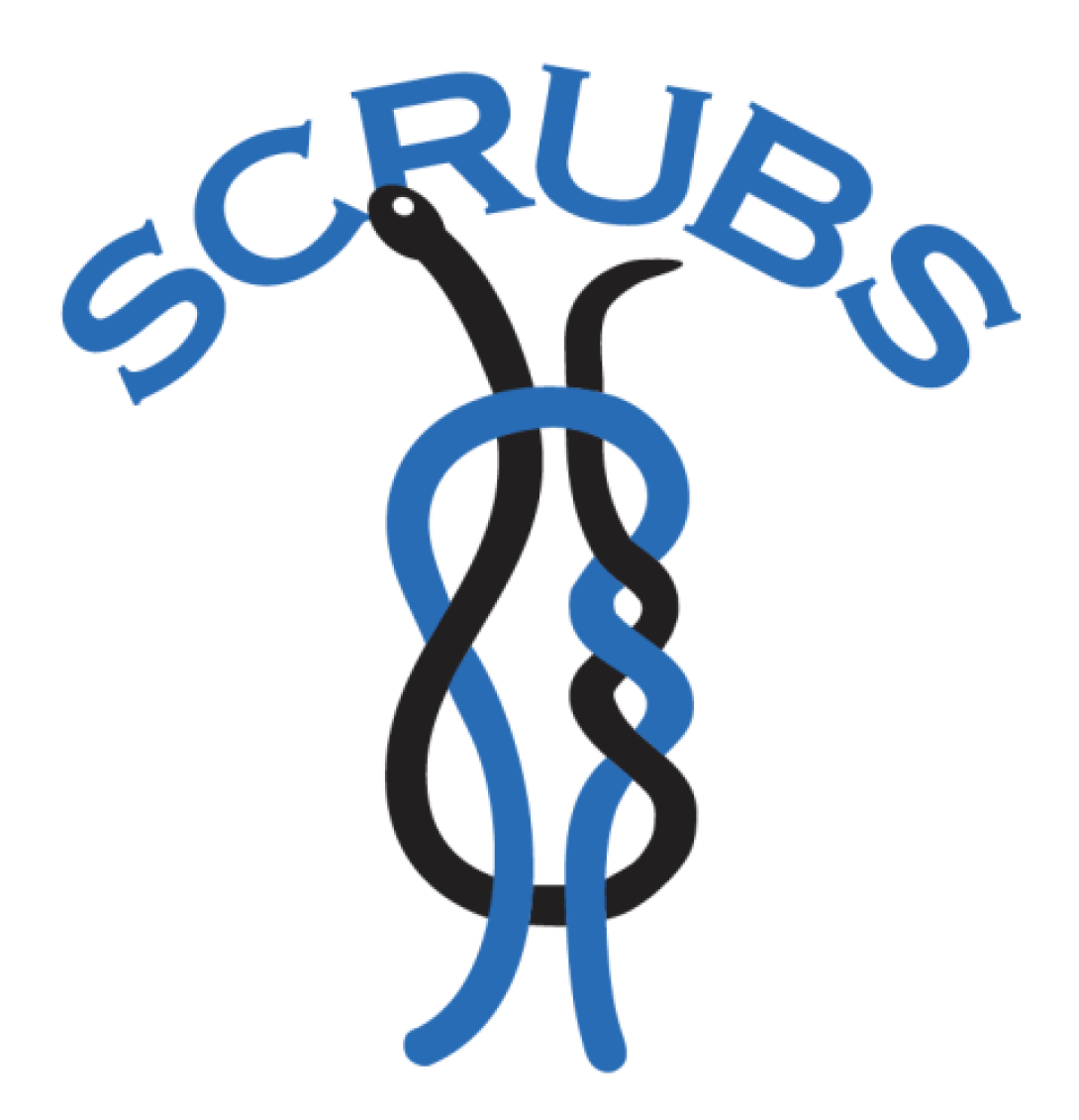© Copyright 1995-2024 Regents of the University of Michigan 
© Copyright 1995-2024 Regents of the University of Michigan
From my first day at Michigan during interviews, I've been aware of two things. First, surgery is difficult to learn as a new student. Second, and more importantly, Michigan has a collaborative and supportive surgery department that helps you succeed, even if you're not a natural upon first picking up a needle driver. I discovered this almost by accident during my Untour. We were in the simulation center with current medical students, residents and faculty trying out basic skills and mock operative situations the surgical students use to improve their technique in the operating room. While attempting a laparoscopic "video game" I struggled with depth perception as the screen slowly filled up with blood from a vessel I was supposed to tie off.
"Here, let me help you," said an M4 who deftly took the mock laparoscopic controls and stopped the bleeding. I remembered watching the red color drain away into the digital suction, simultaneously grateful for the assist and that the evaluation portion of the day was over, but also wondering – how the heck does anyone get good at this?
Flash forward to the same room the summer after M1 year and you'd see me and a bunch of my classmates racing each other to tie knots, suture fake wounds and complete laparoscopic tasks, confident in skills we had practiced throughout the summer. What changed between interview day and that summer? Simple -- the Surgery Olympics.

The Surgery Olympics is a 14-week program starting in June organized by SCRUBS, the surgery interest group, for all M1 students interested in surgery. The program has two parts: a surgery skills competition and a research component. Each small group of students is paired with a faculty member in one of the many surgical fields at Michigan. Their team also has a fourth-year medical student coach. The faculty member helps the team complete a research project in surgery over the course of the program. They also connect the students with residents and other faculty who can help. The students present their work at the end of the summer to participating faculty who score the presentations on quality.
As for the skills competition, M1s work with their M4 coach, faculty and each other to improve tying knots with one and two hands, practicing different kinds of wound closure, and laparoscopic skills. At the end of the summer, teams of M1 students compete to demonstrate both the fastest and highest-quality of these techniques. The winner of the combined research and skills components gets a prize – as do the second and third place teams, just like the actual Olympics.
I remember feeling so excited that my Olympics team finished in second place and eventually published a manuscript on our work. I also appreciated practicing the skills I needed to thrive during my clinical year surgery rotation. Now, as a leader of SCRUBS and a rising M4 applying into general surgery, I'm excited to coach a team of my own this summer!
Any M1 can participate in the Surgery Olympics, regardless of one's desire to pursue surgery as a career. It's a great way for everyone to get research experience, practice skills needed for the surgery rotation and spend time with your classmates outside of required lecture. It also sets up relationships and mentorship with upperclassmen and faculty. I am still in touch with some of the previous M4 coaches for advice today.
For anyone interested in learning more, please come to the SCRUBS Surgery Olympics kick-off planning meeting on Monday May 13th from 3:30-4:30 pm in THSL 6000. I'll see you there!
University of Michigan Medical School
Want top health & research news weekly? Sign up for Health Lab’s newsletters today!





